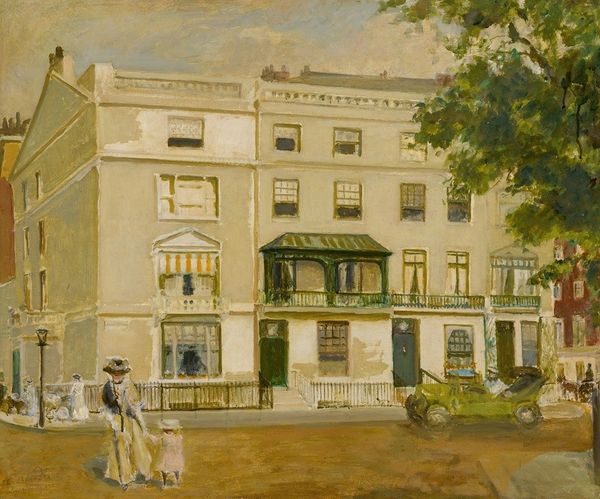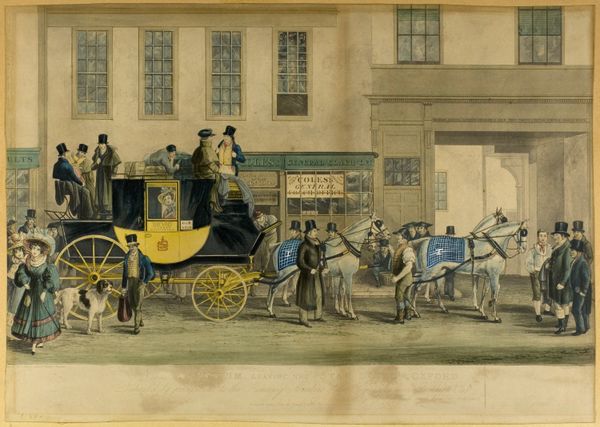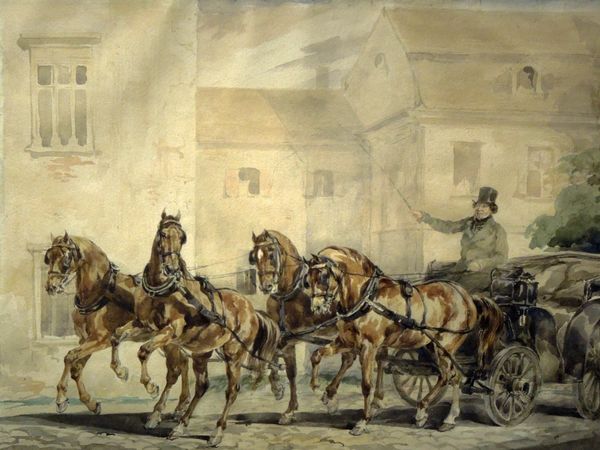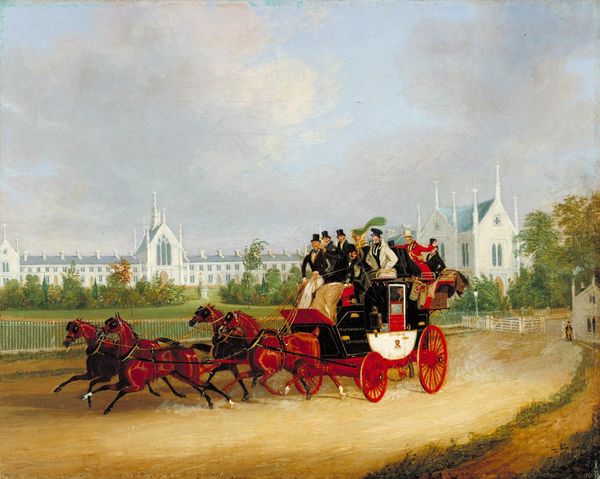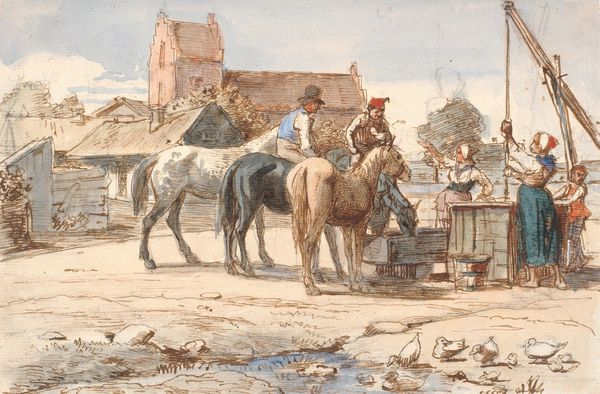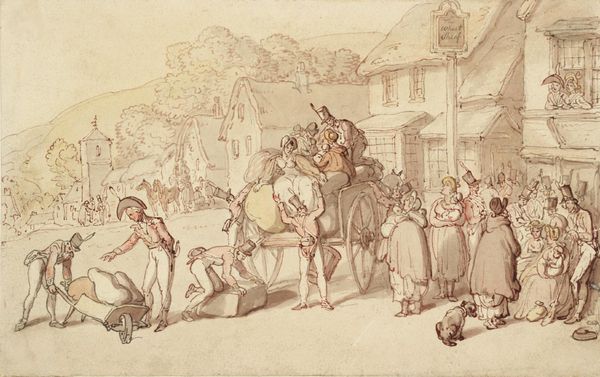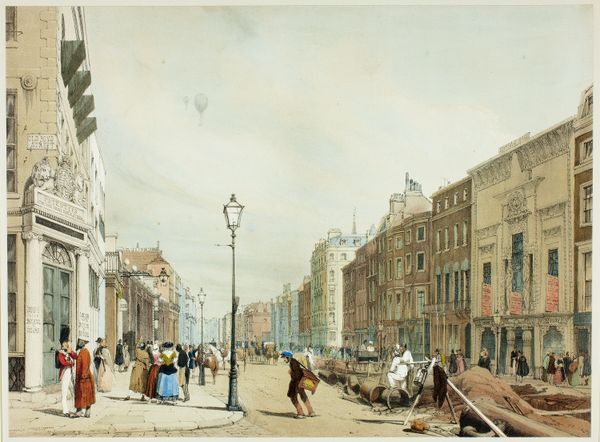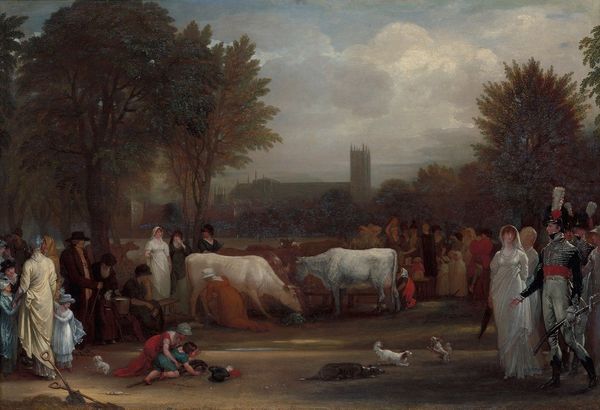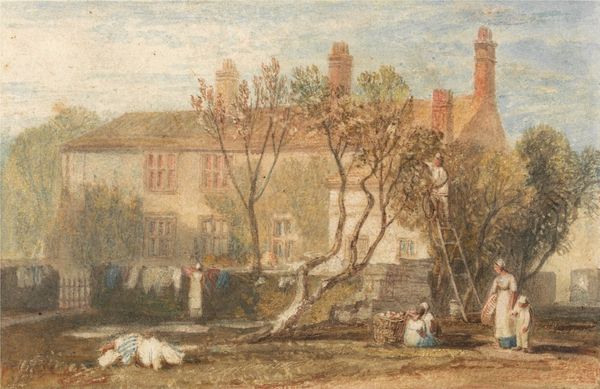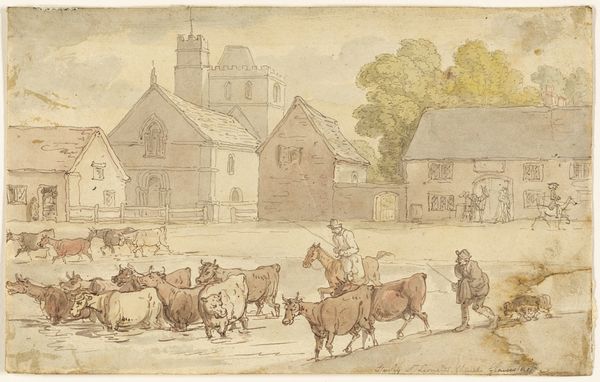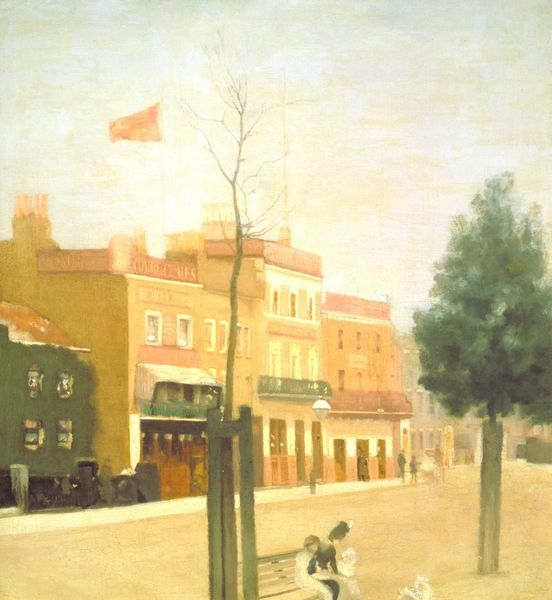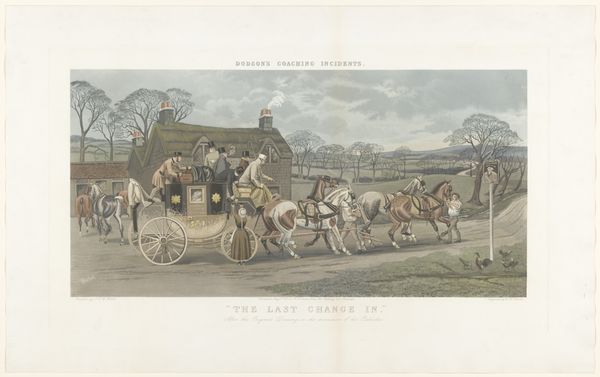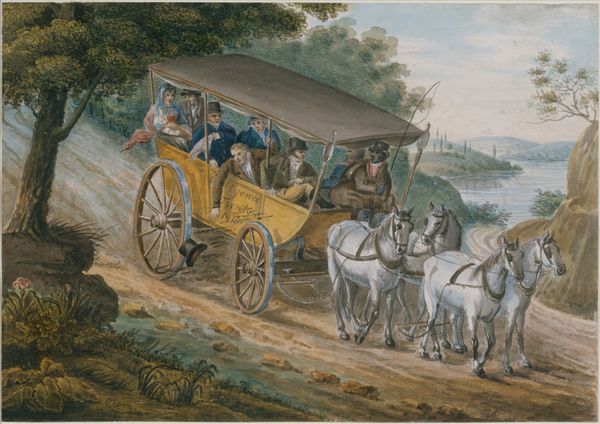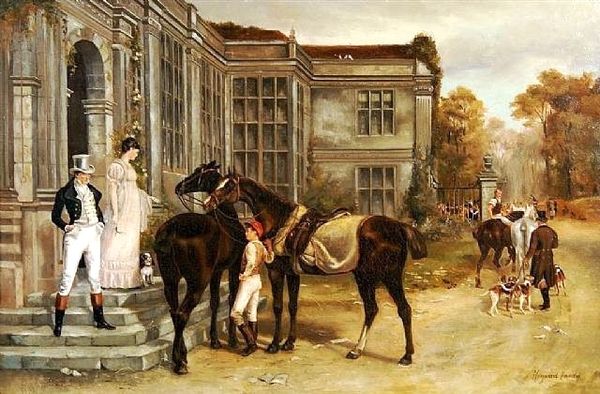
Changing Horses to a Post-Chaise outside the ‘George’ Posting-house c. 1830 - 1840
0:00
0:00
Dimensions: support: 533 x 762 mm
Copyright: CC-BY-NC-ND 4.0 DEED, Photo: Tate
Curator: Charles Cooper Henderson's "Changing Horses to a Post-Chaise outside the ‘George’ Posting-house" captures a vivid scene of equine exchange, here on view in the Tate Collections. Editor: It gives off the impression of a well-orchestrated ballet. The composition is quite masterful, creating a balance between the bustling activity and the tranquil backdrop. Curator: Indeed. Henderson, active in the 19th century, specialized in sporting and coaching scenes, reflecting the social importance of transportation during that era. The 'George' posting-house itself served as a crucial hub. Editor: Observe how Henderson used light to emphasize the muscular forms of the horses and the intricate details of the post-chaise, drawing our eyes to the very heart of the drama unfolding before us. Curator: Absolutely. The painting speaks to a broader narrative of class, commerce, and the infrastructure that shaped the British landscape at the time. Editor: Henderson’s meticulous attention to detail is captivating. The painting invites us to pause, observe, and truly appreciate a slice of life from a bygone age.
Comments
tate 9 months ago
⋮
http://www.tate.org.uk/art/artworks/henderson-changing-horses-to-a-post-chaise-outside-the-george-posting-house-t02360
Join the conversation
Join millions of artists and users on Artera today and experience the ultimate creative platform.
tate 9 months ago
⋮
A yellow and black post-chaise waits outside the inn for its team of four horses to be changed; the two new 'wheelers' - horses chosen for their stamina - are already in the shafts. Post-chaises were owned by inn-keepers who hired them out, with horses and post-boys, to people who wished to travel privately, rather than by stage-coach.1820 to around 1840 was the great era of coaching, when improvements to roads and in the breeding of horses resulted in the greatly increased speed and comfort of travel. These developments were recorded by several 'sporting' artists, including Henderson. He was unusual in restricting his artistic output solely to coaching subjects. Gallery label, April 1996
